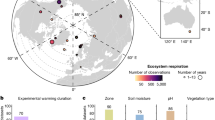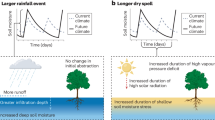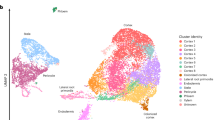Abstract
BARLEY roots have been widely used in studies of ion uptake, but there are conflicting reports about the uptake of sodium and potassium which need some reconciliation.
This is a preview of subscription content, access via your institution
Access options
Subscribe to this journal
Receive 51 print issues and online access
$199.00 per year
only $3.90 per issue
Buy this article
- Purchase on Springer Link
- Instant access to full article PDF
Prices may be subject to local taxes which are calculated during checkout
Similar content being viewed by others
References
Jackson, P. C., and Stieff, K. J., J. Gen. Physiol., 48, 601 (1965).
Epstein, E., Nature, 212, 132 (1966).
Rains, D. W., and Epstein, E., Plant Physiol., 42, 319 (1967).
Pitman, M. G., and Saddler, H. D. W., Proc. US Nat. Acad. Sci., 57, 44 (1967).
Pitman, M. G., Austral. J. Biol. Sci., 18, 10 (1965).
Author information
Authors and Affiliations
Rights and permissions
About this article
Cite this article
PITMAN, M. Conflicting Measurements of Sodium and Potassium Uptake by Barley Roots. Nature 216, 1343–1344 (1967). https://doi.org/10.1038/2161343a0
Received:
Revised:
Issue Date:
DOI: https://doi.org/10.1038/2161343a0
Comments
By submitting a comment you agree to abide by our Terms and Community Guidelines. If you find something abusive or that does not comply with our terms or guidelines please flag it as inappropriate.



